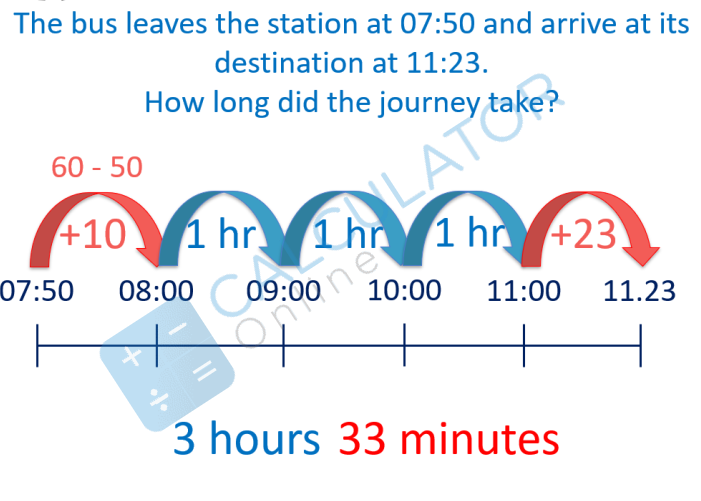Adblocker Detected

We always struggled to serve you with the best online calculations, thus, there's a humble request to either disable the AD blocker or go with premium plans to use the AD-Free version for calculators.
Disable your Adblocker and refresh your web page 😊
Table of Content
The quarter of miles is used to find the Elapsed time and the final speed. We are using the ¼ or quarter as it is the length of the track for the racing cars.
The 1/4 mile calculator is perfect to find the elapsed time and the final speed of a racing car. This can be helpful to find our target time and the speed which we can acquire without any danger during the race.
The main question here is, what is the quarter miles calculation and why do we need to find the quarter mile calculation. When we are finding the quarter mile of the car, then it is essential to find elapsed time and the trap speed(mph). These calculations are based on the flywheel horsepower and the weight of the vehicles.
We are using the car power and weight to find its 1/4-mile elapsed time (ET) and the final speed(trap speed). We can measure the elapsed time and the trap speed by the quarter mile calculator:
You can set the target time for your race.
We need to find some of the following terms to understand the quarter mile calculation:
“Elapse time is the amount of time required from the start of an event to end of an event”
The simple formula for calculating the elapsed time:
Elapsed time = End time – Start time
Example!
What is the elapsed time of the car if it starts its journey from 9:00 a.m. to 12:00 p.m. and then again, it starts its journey from 12:00 p.m. to 7:30 p.m.
Solution:
Time difference between 9:00 a.m. to 12:00 noon = 3 hours
The total Time difference between 12:00 noon to 7:30 p.m. = 7 hours 30 minutes
The elapsed time = 11 hours 30 minutes

“Flywheel horsepower is the amount of power an engine can exert without any surface connection ”. It is the actual power of the engine, the power of the engine is reduced due to direction and air resistance.
“It is the total weight of the vehicle, including the weight of the driver”. The quarter mile calculator actually includes the total weight of the drivers and the vehicle itself, when calculating the trap speed.
It is the speed of the vehicle at the end of the quarter of a mile. You can find the quarter mile speed exactly when using the 1/4 mile calculator to find your trap speed.
The variables used in the estimation of the quarter mile calculation are like the temperature, air speed, Tyre quality, Humidity level, Tyre pressure, Gearing ratios etc.
The common variables for finding the Elapsed time and the Final speed are as follows:
There are different variables used by the Huntington and Fox estimation. Hale’s measurements are using all the above mentioned variables when finding the ET and Final speed.It is best to use the quarter mile time calculator to find the elapsed time and the final speed of cars.
Around 1950, Roger Huntington wanted to find a mathematical relationship between a vehicle’s power, weight, and the performance over the quarter of each mile. He used the ¼ miles calculations as it is the distance the racing track had at that time.
The formula used by him to find the Elapsed Time is:
ET=6.290 * (Weight / Power)¹ᐟ³
where:
The formula used by him to find the Final Speed is:
Final speed = 224 * (Power / Weight)¹ᐟ³
where:
It is easy to find the final speed and elapsed time by the quarter mile calculator. It is better to set our target speed and the elapsed time as we know exactly our engine power.
Later on in the 1960s, a Physics professor Geoffrey Fox proposed a much improved calculation as compared to Huntington’s formula. He included more variables like the vehicle weight,engine power, friction of tyre on the tract,and aerodynamics drag.
The formula used by Fox to find the Elapsed Time is:
ET=6.290 * (Weight / Power)¹ᐟ³
The ET calculator can be separately available to find the elapsed time.
The formula by Fox to find the final speed is:
Final speed = 230 * (Power / Weight)¹ᐟ³
The empirical constant values “230” which is different from the Huntington empirical constant as Foxes used different variables to find the final speed. It can be best to find the ET and the final speed by using the quarter mile calculator, to fix your target speed and total time.
In the early 1980s an engineer and computer programmer Roger Hale made software for calculating the ET and the final speed. The software can use all the variables to find more accurate calculations.But you find Hale’s has used quite a similar formula.
The ET formula by Hale’s:
ET = 5.825 * (Weight / Power)¹ᐟ³
The formulas used for the final speed is given below:
Final Speed = 234 * (Power / Weight)¹ᐟ³
We are comparing three formulas with the help of a worked example to find their output. The car used for the measurements is the Mercedes W10 Formula One car,having a peak horsepower of around 975 HP.The weight of the vehicle is 1638 lb (743 kg). The driver’s weight is taken as 150 lb and it make a total weight of 1788 lb of the car and the driver.
Inserting these values into Huntington’s equations we find:
ET = 6.290 * (weight / power)¹ᐟ³ = 6.290 * (1788 / 975)¹ᐟ³ = 7.699 seconds
Final Speed = 224 * (power / weight)¹ᐟ³ = 224 * (975 / 1788)¹ᐟ³ = 183 mph
Now enter the values in the Fox measurements:
ET = 6.269 * (weight / power)¹ᐟ³ = 6.269 * (1788 / 975)¹ᐟ³ = 7.673 seconds
Final Speed = 230 * (power / weight)¹ᐟ³ = 230 * (975 / 1788)¹ᐟ³ = 187.9 mph
Hales equations provide us the following result:
ET = 5.825 * (weight / power)¹ᐟ³ = 5.825 * (1788 / 975)¹ᐟ³ = 7.13 seconds
Final Speed = 234 *(power / weight)¹ᐟ³ = 234 * (975 / 1788)¹ᐟ³ =191.17 mph
We can use the “1 8th mile horsepower calculator” to find more accurate measurements. This is more accurate measurements as we are using half track for the estimation in place of full track which is a quarter of miles:
Input:
Output:
The 1/4 Mile Calculator is best to find the trap speed and the elapsed time of your racing car before entering into the racing competition.
A vehicle weighs 3,000 pounds and has 300 horsepower of weight, usually taking around 12.46 seconds to travel; the ¼ mile trap speed will be around 108.61 mph at the end of the quarter mile. We can utilize the 1/4 mile time calculator to find the ET and the trap speed of the car.
The fastest 1/4 miles ever is 3.58 secs with the trap speed 286 mph,which is around 621.61 Km/h, and it is the current drag racing record.
Tesla can reach an elapsed time of 9.4 seconds with the trap speed 151 mph. This is quite a great speed for a non racing car, you can convert it into the Km/h which is around 243.011 Km/h.
When you use the elapsed time 8.5 seconds, with the trap speed 167.51 mph, which is quite a fast speed for a common street car. We can convert the elapsed time into the comparative quarter mile horsepower calculator.
The quarter mile calculator is useful to find the maximum elapsed time and the trap speed of your racing car. This is essential to avoid any danger in the competition, you need to know the engine power and the maximum speed you can gain from Zero to the maximum.
From the source carwow.co.uk: carwow 1/4-mile, drag-race leaderboard
From the source wikipedia.org: Dragstrip, Vehicle equipment requirements